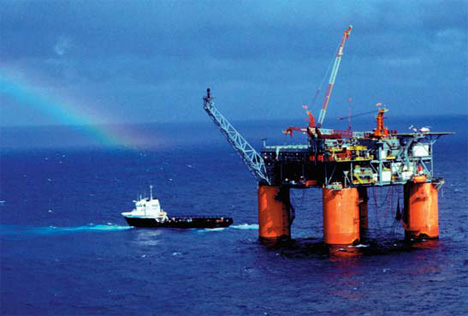Policy director, New Economics FoundationManufacturing. Do we want more, the same amount, or less of it? I spend a fair amount of time with economists, but I like engineers because they deal with the real world: with stuff, tension and compression, rather than with man-made laws governing markets for collateralised debt obligations.
We are often told that we need to focus on what we’re good at. I would put a caution on that: in a world in which China seems to be good at everything, theories of comparative advantage have given way to theories of absolute advantage. We should not rely on people to do things for us.
Any number of graphics can show you the historical flip between the share of manufacturing on one hand, and finance and business services on the other. Why does that matter? The head of the Financial Services Authority, Adair Turner, has said that where financial innovation is concerned, over the last decade much of it has been both socially and economically useless, if not actually destructive.
For all the talk of the weightless economy, we cannot eat digital bread or live by call centres alone. The real economy of materials matters for several reasons, some of them superficially paradoxical.

From the environmental perspective, we need to consume less. However, we have a huge transition to engineer, and inefficient infrastructure that must be replaced. The UK has legally binding targets to reduce greenhouse-gas emissions and we need to go further. By the end of 2016, global greenhouse-gas concentrations, according to IPCC definitions of risk, will reach a level at which the world is more, rather than less, likely to be committed to a 2ºC temperature rise. We will be in danger of playing climate roulette, with the prospect of runaway global warming.
If we are to shift to a low-carbon economy, we need to know how to make things that last
We also need to address peak oil - the global peak plateau and long-term decline of oil production. Lloyd’s of London recently told us that problems of supply increasingly not meeting demand could see oil at $200 (£126) per barrel by 2013. Our own declining oil from the North Sea means that, according to a recent estimate, replacing that could add about £53bn to the trade deficit. If we are going to shift to a low-carbon economy, we need to know how to make things - things that last and that do not use much energy. As economist Herman Daly put it, we can eat further down the food chain but we cannot eat recipes.
There is also a whole security agenda. The outside world is an increasingly less reliable provider. We will look pretty stupid if oil hits $200 per barrel and we have to import much of what we need. The loss of manufacturing capacity leaves us uniquely vulnerable against a background of rising energy dependence. Our relative food self-sufficiency is at its lowest ebb for 39 years and we need to build the infrastructure of a green economy, refurbishing homes and workplaces, and building a new energy infrastructure.
Deutsche Bank estimated that by investing in renewable energy, compared with old-style heavily centralised energy-supply systems, we would generate between two and four times the jobs. And we could achieve this at a fraction of the cost of bailing out the banks. For example, for £10bn, we could reskill 1.5 million people, bringing 120,000 back into the workforce and increasing earnings of those on low incomes by £15bn. The green economy is about repairing, re-using, recycling and retaining, with skills that come from re-making and re-manufacturing.

Andrew Simms
Policy director, New Economics Foundation
Education
BA film and photographic art; London School of Economics, MSc development
Career
1987-88 Campaigner, British Trust for Conservation Volunteers
1988-90 National youth speaker, Green Party
1991 Co-ordinator, the Other Economic Summit
1992-93 Campaign and press officer, Oxfam
1993-95 Researcher, International Institute for Environment and Development
1995-99 Campaign communications manager, Christian Aid
1999-2002 Head of global economy programme, NEF
2002-present Policy director and head of climate change, NEF; Simms has written and edited major publications, including Tescopoly: how one shop came out on top and why it matters; Do good lives have to cost the Earth?; and, with David Boyle, The new economics - a bigger picture










British Steel Signs Five Year Deal With Network Rail
It was all very well to pass emergency legislation which amounted to a ´command economy´ for the industry (directors could be ordered to continue the...